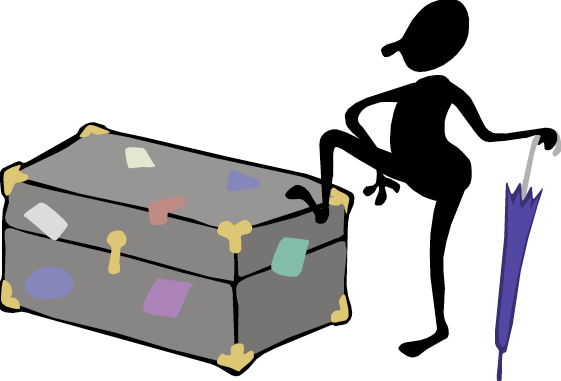Remaining neutral describes the single most important trait of an effective facilitator.
As a YMCA-certified SCUBA diver, we heard “take only photographs and leave only bubbles.” Likewise, an effective facilitator should take only participant input and leave only a thorough trail of documentation and rationale. You will find this premise emphasized in the 27th verse of the Wisdom of the Tao written 2,500 years ago. While varying translations and transliterations exist, we’ve borrowed one version of the 27th verse below:
A knower of the truth
travels without leaving a trace,
speaks without causing harm,
gives without keeping an account.
The door that shuts, though having no lock,
will not open.
The knot he ties, though using no cord,
cannot be undone.
Be wise and help all being impartially,
abandoning none.
Waste no opportunities.
This is called following the light.
What is a good man but a bad man’s teacher?
What is a bad man but a good man’s job?
If the teacher is not respected
and the student is not cared for,
confusion will arise, however clever one is.
This is the great secret.
The Role of Remaining a Neutral and Contextual Master
The role of facilitator is captured by both the knower and the teacher, of context. The shut door represents preventing scope creep. The tied knot represents connection and consensus. Meaning, not one’s “favorite” necessarily, but at a high enough standard that participants will support it professionally and not lose any sleep over it personally. Helping all suggests the innovative potential that exists by embracing heterogeneity. Wasting no opportunities implies thorough listening and documentation.
Above all, to be wise is to be impartial—this is the great secret.
______
Don’t ruin your career by hosting bad meetings. Sign up for a workshop or send this to someone who should. MGRUSH workshops focus on meeting design and practice. Each person practices tools, methods, and activities every day during the week. Therefore, while some call this immersion, we call it the road to building high-value facilitation skills.
Our workshops also provide a superb way to earn up to 40 SEUs from the Scrum Alliance, 40 CDUs from IIBA, 40 Continuous Learning Points (CLPs) based on Federal Acquisition Certification Continuous Professional Learning Requirements using Training and Education activities, 40 Professional Development Units (PDUs) from SAVE International, as well as 4.0 CEUs for other professions. (See workshop and Reference Manual descriptions for details.)
Want a free 10-minute break timer? Sign up for our once-monthly newsletter HERE and receive a timer along with four other of our favorite facilitation tools, free.

Terrence Metz, president of MG RUSH Facilitation Training, was just 22-years-old and working as a Sales Engineer at Honeywell when he recognized a widespread problem—most meetings were ineffective and poorly led, wasting both time and company resources. However, he also observed meetings that worked. What set them apart? A well-prepared leader who structured the session to ensure participants contributed meaningfully and achieved clear outcomes.
Throughout his career, Metz, who earned an MBA from Kellogg (Northwestern University) experienced and also trained in various facilitation techniques. In 2004, he purchased MG RUSH where he shifted his focus toward improving established meeting designs and building a curriculum that would teach others how to lead, facilitate, and structure meetings that drive results. His expertise in training world-class facilitators led to the 2020 publication of Meetings That Get Results: A Guide to Building Better Meetings, a comprehensive resource on effectively building consensus.
Grounded in the principle that “nobody is smarter than everybody,” the book details the why, what, and how of building consensus when making decisions, planning, and solving problems. Along with a Participant’s Guide and supplemental workshops, it supports learning from foundational awareness to professional certification.
Metz’s first book, Change or Die: A Business Process Improvement Manual, tackled the challenges of process optimization. His upcoming book, Catalyst: Facilitating Innovation, focuses on meetings and workshops that don’t simply end when time runs out but conclude with actionable next steps and clear assignments—ensuring progress beyond discussions and ideas.




